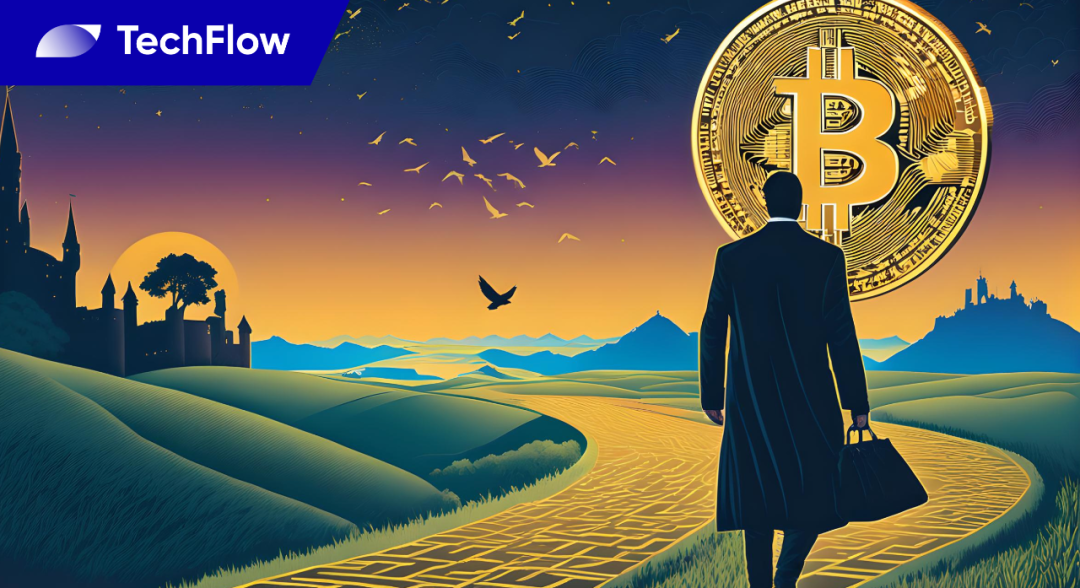What did the US CFTC’s victory in the world’s first DAO case release?
What did the US CFTC's first DAO case victory reveal?On June 9th, 2023, the U.S. Commodity Futures Trading Commission (“CFTC”) announced that it had won a victory in its lawsuit against the decentralized autonomous organization (DAO) Ooki DAO, with the court largely supporting all of the CFTC’s claims. If Ooki DAO does not appeal, its members may face the consequences of civil liability and be responsible for the $643,542 fine in the judgment. As for the DAO itself, it may soon face the fate of permanent closure and deletion of related content.
The Sajie team believes that the main value of the quick and controversial CFTC vs. Ooki DAO case is to establish a precedent for DAOs as “eligible defendants” under U.S. law, which indicates that California courts essentially treat DAOs as “legal entities.” Of course, this treatment does not mean that DAOs have become legal “corporate entities,” but it does not affect their ability to assume criminal, administrative, and civil responsibilities. Of course, the specific way of assuming responsibility may not necessarily follow the way in which existing civil and commercial entities assume legal responsibility, as DAO’s organizational form, operating model, etc. are far different from traditional civil and commercial entities.
Today, the Sajie team will detail the first DAO case in the United States.
I. Introduction to the First DAO Case in the United States
- Hinman Memo Unsealed: SEC Official Expresses Concern Over “Ethereum is Not a Security” Declaration
- Uniswap Founder Hayden Adams Personally Interprets What Uniswap V4 Is
- Uniswap V4 is here: This is what the future of Uniswap V4 could look like
Although CFTC vs. Ooki DAO has attracted a lot of attention due to the gimmick of the first DAO case in the United States, in fact, it is not an isolated lawsuit, but a series of “skin-changing” events and measures that the DAO’s founding members believed were sufficient to avoid “driving without a license” risks. Therefore, the Sajie team reminds everyone that Web3 practitioners should pay more attention to the fact that DAO is a new type of organizational form, rather than a tool to avoid legal risks in this case.
Ooki DAO was formerly a DeFi protocol called bZx. The main purpose of this DeFi was to provide virtual asset collateral for leverage trading on the chain, with the final profit determined by the price difference between the two digital assets from establishing a position to closing it. Since bZx is a DeFi protocol, there is no third-party intermediary to custody user assets.
bZx was initially developed and maintained by bZeroX LLC and its founders Tom Bean and Kyle Kistner in 2019. Because it is actually a more centralized operating model and has encountered some problems in its operation, it has attracted the attention of the CFTC very early on. Subsequently, in order to prevent regulatory agencies from suing bZx and isolate personal risks, the two founders decided to establish bZx DAO in August 2021, and achieved “skin-changing” and transformation by transferring the control of bZx DeFi from bZeroX LLC to bZx DAO as a whole. Finally, bZx DAO was officially renamed Ooki DAO in November 2021.
According to the investigation report released by CFTC, Ooki DAO’s main business, operating model, and scope of operation have not only not changed since the bZx period, but the two founders also publicly announced in the community that “DAO can effectively prevent regulatory enforcement.” As the saying goes, if you don’t mess around, you won’t die, and only by keeping quiet can you make a big fortune. The high-profile and deliberate confrontation with regulatory authorities by Ooki DAO’s actual controller has ultimately led to today’s situation. On September 22, 2022, the Commodity Futures Trading Commission issued an order and accused bZeroX LLC and Tom Bean and Kyle Kistner at the same time. The CFTC believes that the organization: (1) illegally provides digital asset commodity trading; (2) engages in activities that only registered futures commission merchants (FCMs) can engage in; (3) has not fulfilled the compliance measures required by the Bank Secrecy Act, such as KYC. At the same time, the CFTC filed a federal civil enforcement lawsuit in the Northern District of California, accusing Ooki DAO of violating the aforementioned laws. The CFTC’s claims include civil compensation, fines, and various prohibitions on Ooki DAO’s subsequent operations.
2. What is the significance of the first DAO case for Web3 practitioners?
1. Whether a DAO is legal or not does not affect its eligibility as a defendant
For a long time, some DAO supporters in the United States have believed that this new form of organization enjoys a special “legal immunity” in judicial practice. This is because under the system of case law in the United States, if there is no precedent or clear legislation available for reference, the court as a neutral arbiter of judicial authority cannot arbitrarily decide who and how to be responsible for illegal actions based on unfounded legal theories or vague consumer protection purposes.
However, on the other hand, although the relevant claims of such “legal immunity” have some truth, they are not a “right” in the legal sense, and of course, they cannot request legal protection if they are not a right; on the other hand, such entities as Ooki DAO that use “legal immunity” as a means to evade compliance and regulation are widely present in reality, which leads to serious “broken window effects” and damages the general public order in society if administrative regulatory agencies and judicial institutions turn a blind eye to such blatantly illegal behavior.
Therefore, the Sajie team believes that from the perspective of legal theory and social value theory, it is necessary and practical to conduct penetrative, substantive supervision, law enforcement, and judicial activities on specific DAO organizations.
In the judgment of whether DAO is a qualified subject in the first DAO case, the judge chose to regard DAO as an “unincorporated association” (Unincorporated Association, hereinafter referred to as “UA organization”). The so-called UA organization under US law can also be called “unincorporated groups”, “unregistered associations”, “unregistered associations”, etc., which is actually a kind of association or association that does not need to be registered as a legal person, nor has legal personality. Such organizations generally have representatives or managers, but have not obtained legal personality, and may not have independent property, business premises, and organizational rules. From the perspective of the judiciary, whether the UA organization is legally registered or self-established, and whether the reorganization is a legal or illegal organization, does not affect the judicial activities of the judicial organs, nor does it affect their legal responsibilities.
In China, entities similar to UA organizations include: (1) individual industrial and commercial households and rural contracted management households, (2) personal partnerships, unincorporated cooperative economic organizations and partnership-type joint venture organizations without legal personality; (3) foreign companies and organizations that have not obtained Chinese legal personality. Based on this, a North California judge ruled that DAO is a legal UA organization and confirmed its eligibility as a defendant.
2. DAO is not a risk “firewall”
Don’t forget the past and learn from experience. The Sajie team has always emphasized that as long as it is a jurisdiction with active economic activities, relevant regulatory agencies in the financial regulatory field will inevitably adopt strong regulatory measures, conduct penetrative supervision and substantive supervision. The large-scale lawsuits filed by the CFTC and SEC against virtual asset service providers (including the first DAO case) have already proved that apparent compliance or false compliance is meaningless.
bZeroX LLC and its founders Tom Bean and Kyle Kistner’s idea of using DAO as a risk firewall is actually too naive. “Nullum crimen, nulla poena sine praevia lege poenali” is undoubtedly the basic judicial judgment principle of the global peers, but the effectiveness of such principles is limited to the judicial practice of criminal cases. In a precedent law country like the United States, for civil and commercial litigation cases and administrative litigation cases where the legal provisions are unclear or not provided, it only tests the judge’s trial skills, prolongs the litigation process, and increases judicial costs. In other words, the absence of clear legal provisions does not mean the emergence of “legal immunity.”
III. Conclusion
Our team believes that the significance and value of the DAO first case to the entire industry is only the fact that “DAO is a legally qualified defendant.” Admittedly, in this case, the CFTC has the suspicion of expanding regulatory power through “selective law enforcement,” but as to whether the CFTC and SEC can use this as a breakthrough to regulate and enforce DAO, DeFi and other on-chain projects, it is still unknown, which is essentially a problem of regulatory conflict and balance of social interests.
At the same time, do members participating in governance in DAO need to bear the responsibility for civil infringement or other disputes caused by DAO? And what kind of responsibility should they bear? How to determine the distribution rules of responsibility? All of these need to be further judicially practiced to be determined. It is not just mechanically processing the relevant precedents of UA organization after determining it as a “legally qualified defendant” to deal with responsibility. There is still a lot of exploration space.
Finally, our team reminds that the DAO first case is not necessarily conclusive. The US federal court handles civil cases with a three-level and two-instance final trial system. Generally, civil cases are heard by federal district courts as trial courts. If the parties are not satisfied with the trial court’s ruling, they can appeal to the federal court. If there are objections to the laws applied by the court, a request for judicial review can be made to the Supreme Court. We do not know whether Ooki DAO will choose to continue to “lie flat” and wait for death or rise up and resist through appeal.
We will continue to update Blocking; if you have any questions or suggestions, please contact us!
Was this article helpful?
93 out of 132 found this helpful
Related articles
- When will SEC Chairman Gary Gensler step down as proposed by US lawmakers?
- Will on-chain video games for BTC become a reality? Mythic receives revolutionary upgrade
- Understanding SEC’s Regulatory Timeline and Responses from All Parties in One Article
- How can Frax reveal the essence of LSD War through a product?
- New Directions for Web3 to Take in the AI Era
- Exploring the Development Potential of Instadapp: Understanding the Mechanisms Behind Its Component Operations
- Why is DOT considered software while multiple well-known public chain tokens are recognized as securities by the SEC?






